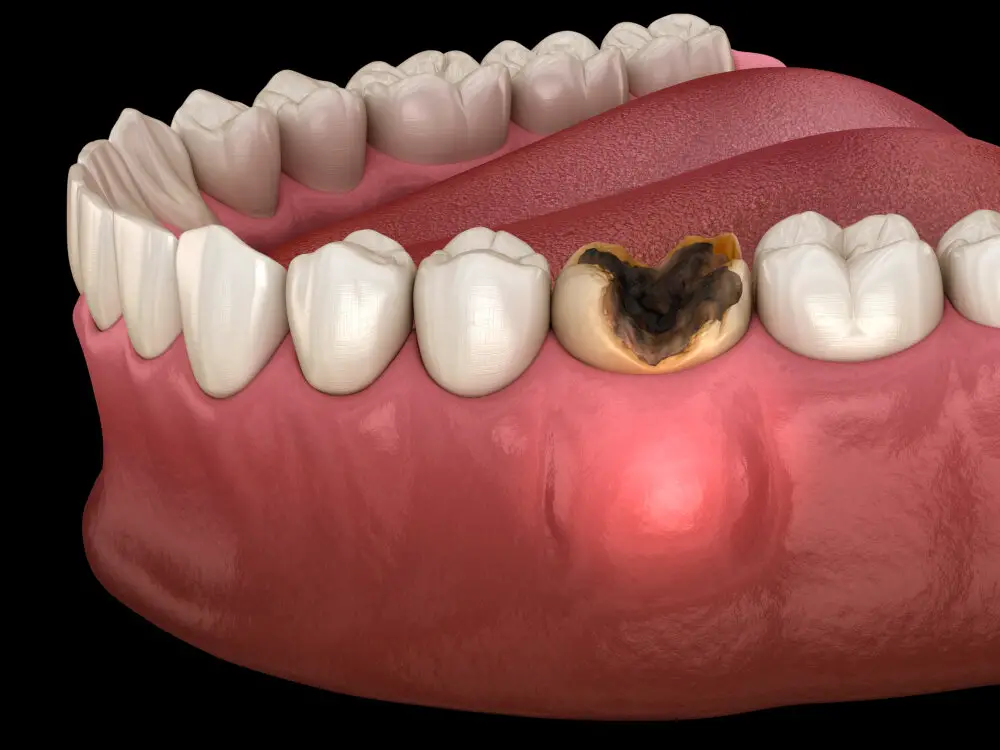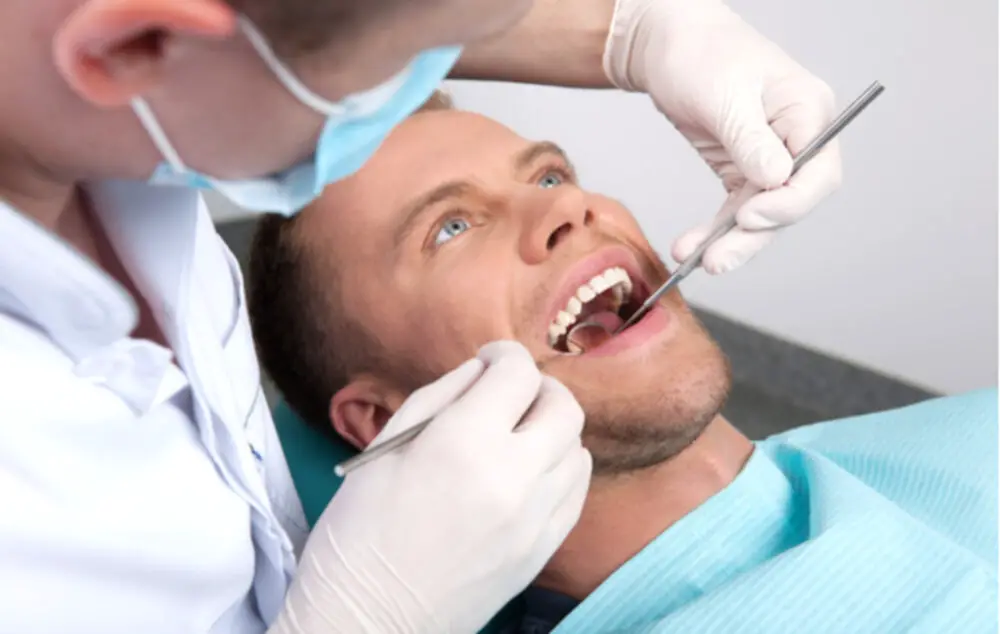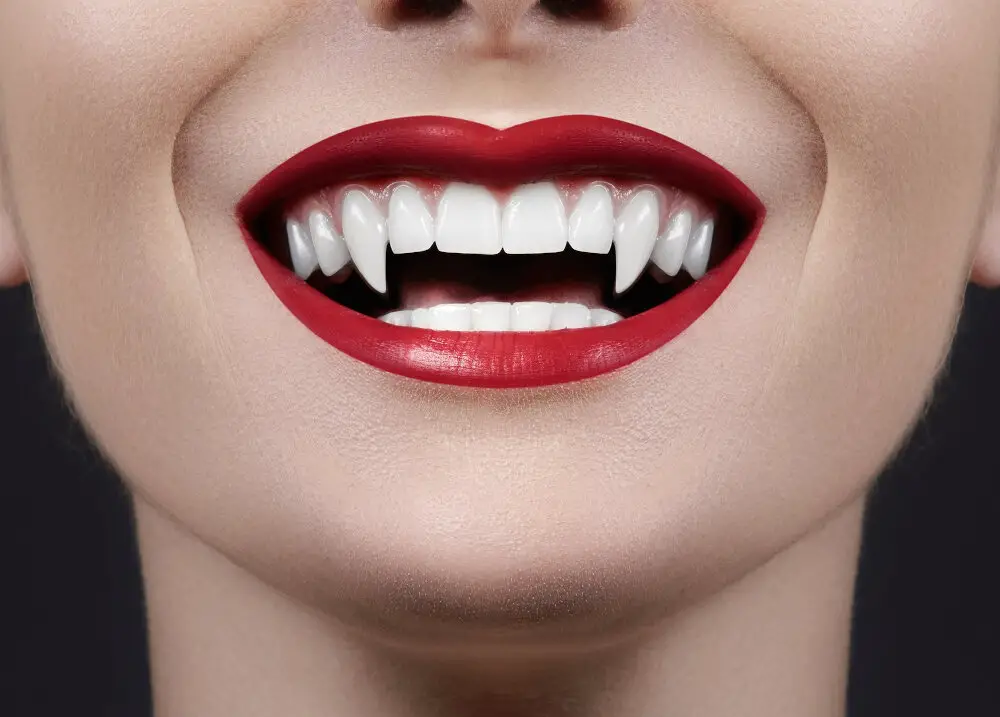Small Dog Dental Health: How Many Teeth Do They Have?

Small dog dental health is crucial to their overall well-being. Just like humans, dogs need regular dental care to maintain healthy teeth and gums. One of the most common questions pet owners have is how many teeth do their small dogs have? Understanding the dental anatomy of small dogs can help pet owners take better care of their furry friends’ teeth and gums. Dogs have two sets of teeth in their lifetime: deciduous teeth (also called puppy teeth) and permanent teeth. Small dogs typically have 28 deciduous teeth, which are replaced by 42 permanent teeth as they grow. The permanent teeth include incisors, canines, premolars, and molars. Each type of tooth has a specific function in the dog’s mouth, such as tearing, cutting, and grinding food. Maintaining healthy teeth and gums is essential for small dogs to eat, drink, and play without pain or discomfort.
Dental health is just as important for dogs as it is for humans. Keeping a dog’s teeth clean can prevent a variety of health issues, including gum disease, tooth decay, and bad breath. Poor dental hygiene can even lead to more serious health problems, such as heart disease. Small dogs are particularly vulnerable to dental issues due to their small mouths and crowded teeth. It is important to make sure they have their teeth brushed regularly and to provide them with dental chews or toys to help clean their teeth. By taking care of a dog’s dental health, owners can ensure that their furry friend stays healthy and happy for years to come.
Small and large dogs have different dental needs, due to the differences in their size and anatomy. Small dogs have smaller mouths, which means they have less space for teeth and are more prone to dental problems such as overcrowding, tartar buildup, and tooth decay. Additionally, small dogs have smaller, more fragile teeth that can be easily damaged by chewing on hard objects or bones. Therefore, it is important for small dog owners to pay extra attention to their pet’s dental health by providing regular dental checkups, brushing their teeth daily, and feeding them a healthy diet. By taking these preventative measures, small dog owners can help ensure that their furry friends maintain healthy teeth and gums throughout their lives.
The purpose of the article \Small Dog Dental Health: How Many Teeth Do They Have\ is to educate dog owners about the importance of dental care for their pets and to provide information about the number of teeth small dogs have. The article highlights the fact that dental problems are common among small dogs and can have serious health consequences if left untreated. By understanding how many teeth their dogs have and the proper ways to care for them, owners can take proactive steps to ensure their pets maintain good oral health throughout their lives. The article also emphasizes the importance of regular check-ups with a veterinarian and dental cleanings to prevent serious dental issues.
How Many Teeth Do Small Dogs Have?

Small dogs are beloved by many people for their cute and compact size. However, their small size also means that they have fewer teeth than larger dogs. On average, small dogs have 28 teeth in total, including incisors, canines, premolars, and molars. This is less than the 42 teeth that larger dogs have. Despite having fewer teeth, small dogs still require proper dental care to maintain good oral health. Dental health is important for all dogs, regardless of their size. Small dogs are more prone to dental problems due to their smaller mouths and teeth. They are also more likely to develop dental issues if their diet consists of soft or wet food, as opposed to dry kibble. Small dogs may also be more susceptible to gum disease, which can lead to tooth loss if left untreated. It is important for small dog owners to brush their pet’s teeth regularly and provide them with dental chews and toys to promote healthy teeth and gums. Regular visits to the veterinarian for dental check-ups and cleanings are also recommended.
Small dogs, like their larger counterparts, have a total of 42 teeth in their mouths. These teeth are made up of incisors, canines, premolars, and molars. The incisors are located at the front of the mouth and are used for biting and tearing food. Canines are the sharp, pointed teeth that are used for tearing meat. Premolars are located behind the canines and are used for crushing and grinding food. Finally, molars are located at the back of the mouth and are used for grinding and chewing food. It is essential to keep all of these teeth healthy and clean to ensure good overall dental health for small dogs. Regular brushing and dental exams can help prevent dental problems and keep small dogs happy and healthy.
When it comes to small dog dental health, it’s essential to understand how many teeth they have compared to larger dogs. While larger dogs have more teeth, small dogs have a surprising number of teeth in their tiny mouths. In fact, small breeds can have up to 42 teeth, which is only a few less than their larger counterparts. The number of teeth a dog has is crucial to their overall dental health, and small dogs require just as much attention and care as larger dogs. Neglecting to properly care for a small dog’s teeth can lead to serious health issues, including tooth decay, gum disease, and even heart problems. So, it’s important to pay close attention to your small dog’s dental health and give them the proper care they need.
Small dogs typically have 28 baby teeth that they begin to develop at around 3-4 weeks old. These baby teeth, also known as deciduous teeth, are gradually replaced by permanent teeth as the dog grows. By the time a small dog reaches six months of age, they should have all of their permanent teeth, which typically number 42. During this process, small dogs will lose their baby teeth and have their permanent teeth emerge in their place. Generally, small dogs will lose all of their baby teeth by the time they are four months old. This is an important process to monitor, as retained baby teeth can cause dental problems in the future. It’s also essential to maintain good dental hygiene in small dogs to prevent tooth decay and gum disease.
Dogs are carnivorous mammals that use their teeth to catch, kill, and eat prey. They have four types of teeth: incisors, canines, premolars, and molars. The incisors are located at the front of the mouth and are used for biting and scraping. Canines are the long, pointed teeth behind the incisors and are used for gripping and tearing. Premolars are located behind the canines and are used for slicing and grinding. Finally, molars are located at the back of the mouth and are used for crushing and grinding. Each type of tooth plays a specific role in the dog’s ability to eat, and maintaining good dental health is essential for a dog’s overall well-being.
Signs of Dental Problems in Small Dogs

Regular dental care is essential for small dogs. Dental problems are common in small dog breeds, and it is crucial to recognize the signs of dental problems to prevent more severe health issues. One of the most obvious signs of dental problems in small dogs is bad breath. If your dog’s breath smells bad, it is a sign of bacterial buildup in their mouth. Other signs of dental problems include tartar buildup, loose or missing teeth, bleeding gums, and difficulty chewing. If your dog is experiencing any of these symptoms, it is important to take them to a veterinarian for a dental checkup. It is essential to prioritize dental health for small dogs. Small dogs have smaller mouths, which means they are more prone to dental problems. Some small dog breeds, such as Chihuahuas and Yorkshire Terriers, are more prone to dental problems than others. Providing your small dog with proper dental care, such as regular brushing and dental checkups, can help prevent dental problems and ensure good overall health. In addition, feeding your small dog a healthy diet and avoiding sugary treats can also help maintain their dental health. By being aware of the signs of dental problems and taking preventative measures, you can ensure that your small dog has a healthy and happy life.
Small dogs are susceptible to dental problems, and it’s essential to look out for any signs of discomfort or pain. One of the common signs that a small dog may be experiencing dental problems is bad breath. If your pet has persistent bad breath, it may be a sign of periodontal disease, which occurs when bacteria build up in the mouth and cause infection and inflammation of the gums. Another sign to watch out for is a reluctance to eat or drink, indicating that your dog is experiencing pain or discomfort when chewing or swallowing. Additionally, if your pet is pawing at their mouth or showing sensitivity when their face is touched, it may be a sign of tooth decay or gum disease. Regular dental check-ups and good oral hygiene practices are crucial in maintaining your small dog’s dental health.
Dental problems can significantly impact the overall health of small dogs. Poor dental hygiene can lead to periodontal disease, which can cause tooth loss, pain, and infection. The bacteria from an infected tooth can spread throughout the bloodstream and affect the heart, liver, and kidneys. Furthermore, small dogs are prone to developing dental issues due to their small mouths, crowded teeth, and misaligned bites. These issues can lead to difficulty eating, which can result in malnutrition and weight loss. Therefore, it is essential to prioritize dental care in small dogs to prevent these health complications and ensure their overall well-being.
Preventing dental problems in small dogs requires a combination of regular dental care and a balanced diet. Firstly, owners should schedule regular dental check-ups with their veterinarian to ensure any issues are identified early and treated promptly. Secondly, owners should provide their small dogs with chew toys, which can help keep their teeth clean and strong. Thirdly, feeding small dogs with a balanced diet that is rich in nutrients can help keep their teeth healthy. Lastly, brushing your small dog’s teeth regularly can help prevent plaque buildup and reduce the risk of dental problems. By following these preventative measures, owners can help maintain their small dog’s dental health and prevent issues such as gum disease and tooth decay.
Taking Care of Your Small Dog’s Teeth

Taking care of your small dog’s teeth is crucial to their overall health and well-being. Small dogs have a higher risk of dental problems compared to larger dogs due to their smaller mouths and teeth. It is important to start taking care of your small dog’s teeth from a young age to prevent dental issues such as gum disease, bad breath, and tooth decay. One of the most effective ways to keep your small dog’s teeth healthy is by regularly brushing their teeth. Use a soft-bristled toothbrush and toothpaste designed specifically for dogs. Brush the teeth and gums gently, using circular motions. It is recommended to brush your small dog’s teeth at least twice a week. In addition to brushing, providing your small dog with dental chews and toys can help keep their teeth clean and healthy. Chewing on toys and treats can help remove plaque and tartar buildup from their teeth, reducing the risk of dental issues. However, it is essential to choose dental chews and toys that are appropriate for your small dog’s size and breed. You should also avoid giving your small dog hard bones or objects that could potentially cause damage to their teeth. Regular dental check-ups with your veterinarian can also help detect any dental problems early on and prevent them from worsening. By taking care of your small dog’s teeth, you can help ensure they maintain good dental health and live a happy, healthy life.
Small dog dental health is incredibly important for their overall wellbeing. To take care of a small dog’s teeth, it’s best to establish a regular dental care routine that includes brushing their teeth daily with a toothbrush and toothpaste designed specifically for dogs. Additionally, providing dental chews and toys can help reduce plaque and tartar buildup. It’s important to schedule regular dental checkups with a veterinarian to catch any potential issues early on. Ensuring that your small dog eats a healthy diet and avoids sugary treats can also help keep their teeth healthy. Neglecting dental care can lead to dental disease, which can cause pain, infection, and even tooth loss in small dogs. By following these best practices, you can help your small dog maintain healthy teeth and a happy, pain-free life.
When it comes to dental care products for small dogs, there are several options available in the market. One of the most popular options is dental chews, which help to remove plaque and tartar buildup from the teeth. Another type of dental care product is the dental spray, which can be applied to the teeth and gums to reduce the growth of bacteria. Additionally, there are toothbrushes and toothpaste designed specifically for small dogs, making it easy to maintain their dental health. It is important to choose the right dental care product based on your dog’s needs, age, and overall health. Regular use of these products can help to prevent dental issues and ensure your small dog maintains healthy teeth and gums.
Brushing a small dog’s teeth is an essential part of their dental health routine. To start, choose a toothbrush that is specifically designed for small dogs, along with toothpaste that is safe for them to ingest. Then, begin by gently lifting your dog’s lip to expose their teeth. Dip the toothbrush in the toothpaste and brush the teeth in small circular motions. Be sure to focus on the back teeth, as these are often neglected and prone to plaque buildup. If your dog is uncooperative, try introducing tooth brushing gradually, starting with just a few seconds at a time and gradually increasing the duration. With consistent brushing, your small dog can have a healthy and happy smile for years to come.
Maintaining good dental health is crucial for small dogs as it helps them to avoid various health issues and discomforts. Small dogs have 42 teeth, which makes them more vulnerable to dental problems such as tartar buildup, gum disease, and tooth decay. These problems can cause severe pain, tooth loss, and even infections that can spread throughout the body. Regular dental checkups, brushing, and cleaning can prevent these issues from occurring and help to keep your small dog’s teeth healthy and strong. Neglecting dental health can also lead to bad breath and difficulty eating, which can impact your small dog’s overall quality of life. Therefore, it’s essential to pay attention to your small dog’s dental health and take regular steps to keep their teeth clean and healthy.
The article \Small Dog Dental Health: How Many Teeth Do They Have?\ discusses the importance of dental hygiene for dogs, specifically small breeds. The article highlights that small dogs tend to develop dental problems more frequently than larger breeds and thus require more attention to their dental health. The article explains the anatomy of a dog’s mouth and how many teeth a small dog typically has, emphasizing the importance of regular dental check-ups and cleaning. The article also provides tips on how to prevent dental problems, such as providing chew toys and incorporating dental treats into their diet. Overall, the article emphasizes the importance of dental hygiene for small dogs to prevent dental problems and promote overall health.
In conclusion, caring for a small dog’s teeth is crucial for their overall health and well-being. Consistent dental care, including daily brushing, annual dental exams, and a healthy diet, can help prevent tooth decay, gum disease, and other oral health issues. Small dog owners should also provide their furry friends with safe chew toys and treats designed to promote healthy teeth and gums. Neglecting a small dog’s dental care can lead to painful and costly dental procedures, and in severe cases, even tooth loss. Therefore, it’s essential to prioritize your dog’s dental health, as it not only helps them maintain healthy teeth but also promotes good overall health.
Conclusion

In conclusion, small dog dental health is a crucial aspect of their overall well-being. These furry companions have a total of 42 teeth, which require regular care to prevent dental problems such as tartar buildup, gum disease, and tooth decay. As responsible pet owners, it’s essential to maintain good oral hygiene for our small dogs and schedule regular dental check-ups with a veterinarian. Neglecting their dental health can lead to serious health issues and discomfort for our beloved pets. Therefore, we must prioritize their dental care to ensure their health, happiness, and longevity.





